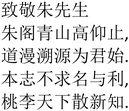Professor Daoben Zhu: a giant in organic solids in China
Qichun
Zhang
*a,
Wenping
Hu
*b,
Thuc-Quyen
Nguyen
*c,
Qibing
Pei
*d and
Jia
Zhu
*e
aCity University of Hong Kong, Hong Kong. E-mail: Qiczhang@cityu.edu.hk
bTianjin University, China. E-mail: huwp@tju.edu.cn
cUniversity of California, Santa Barbara, USA. E-mail: quyen@chem.ucsb.edu
dUniversity of California, Los Angeles, USA. E-mail: qpei@seas.ucla.edu
eBeijing National Center for Nanoscience and Technology, Chinese Academy of Sciences, China. E-mail: zhujia@nanoctr.cn
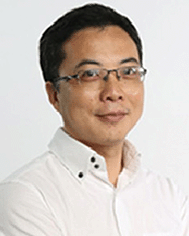 Qichun Zhang |
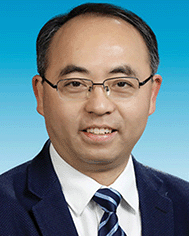 Wenping Hu |
 Thuc-Quyen Nguyen |
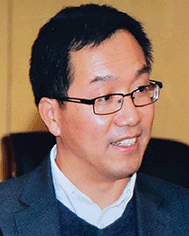 Qibing Pei |
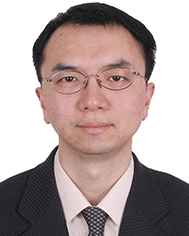 Jia Zhu |
This themed issue of Journal of Materials Chemistry C is a tribute to one of the pioneers of organic solids in China, Professor Daoben Zhu, on the occasion of his 80th birthday. His remarkable advancements in organic solids range from small-molecule-based conductors/semiconductors (including C60-related materials), two-dimensional metal–organic-framework-based superconductors, organic ferromagnets, organic thermoelectric materials; to thin-film-related devices as well as fundamental physics and potential applications. Professor Zhu's scientific creativity as well as his contribution to organic solids has not only inspired many Chinese young scientists to follow his steps and make this field prosperous in China, but also had a profound effect on global research. His remarkable achievements have received prestigious international recognition including the Lifetime Achievement Award of the Chinese Chemical Society (2021), Outstanding Science and Technology Achievement Prize of Chinese Academy of Sciences (2018), National Natural Science Second Prize five times (1988, 2002, 2004, 2007, 2014), Academician of the Chinese Academy of Sciences (1997), Honorary Member of the Korean Chemical Society (1999), Fellow of the Royal Society of Chemistry (2001), Fellow of the Asia Pacific Academy of Materials Science (2003), and Academician of the Third World Academy of Sciences (now Academy of Sciences for Developing Countries) (2009).
Professor Zhu's research has surely motivated the younger generations and kindled their curiosity to continue pushing the advance of organic solids. As presented in this themed issue, it is our great honor to invite a number of Professor Zhu's former students, coworkers and friends to contribute to this themed issue and make it an exciting scientific read. You can find a range of reviews, perspectives, communications and full articles, which cover the design and preparation of new organic conjugated materials, the study of structure–property relationships and their potential applications in important devices including photovoltaics, organic spintronics, organic magnetics, organic thermoelectrics, organic memristors, organic transistors, organic optics, organic batteries, sensors, and bio-applications.
Much work in this themed issue has stemmed from or been inspired by Professor Zhu's research in organic materials and device applications. These include the perspective/reviews/articles/communications on organic transistors by Samorì et al. (10.1039/D1TC05055A), by Sun et al. (10.1039/D1TC04384F), by Luscombe et al. (10.1039/D1TC05229B), by Zhang, Yu et al. (10.1039/D1TC02833B), by Deng, Geng et al. (10.1039/D1TC04207F), by Jia, Guo et al. (10.1039/D1TC04079K), by Yang, Li et al. (10.1039/D1TC04307B), by Zhang, Yamada et al. (10.1039/D1TC03547A), by Takimiya et al. (10.1039/D1TC04312A), by Leo et al. (10.1039/D1TC04230K), by Wang, Zhao, Zhang et al. (10.1039/D1TC04610A), by Li, Geng and Hu et al. (10.1039/D1TC02284A), by Huang, Facchetti, Marks et al. (10.1039/D1TC03156B), by Ren, Yu, Hu et al. (10.1039/D1TC05136A), and by Miao et al. (10.1039/D1TC02810C); the perspective/article on spintronics by Gu, Guo, Zhang, Zhu, Li, Zhang, Sun et al. (10.1039/D1TC04333A) and by Ding, Tian, Hu et al. (10.1039/D1TC04259A); the reviews/communication/articles on organic semiconductors by Zhang et al. (10.1039/D1TC04340D), Dong et al. (10.1039/D1TC04866J), by Dong and Li (10.1039/D1TC04598A), by Kamencek and Zojer (10.1039/D1TC04708F), by Ma et al. (10.1039/D1TC03133C), by Meng, Liu et al. (10.1039/D1TC03421A), by Zhang, Zhang et al. (10.1039/D1TC04291B), by Faul et al. (10.1039/D1TC04518K), by Zhang, Wang, Mori, Zhu et al. (10.1039/D1TC04305F), and by Huynh, De Feyter et al. (10.1039/D1TC03142B); the reviews/communications/articles on organic optical materials by Li et al. (10.1039/D1TC04163K), by Zhang, Fan et al. (10.1039/D1TC04271H), by Sun, Yang, Zhang et al. (10.1039/D1TC04257B), by Yan, Zhao et al. (10.1039/D1TC02638K), by Gong et al. (10.1039/D1TC04278E), by Tong, Qu et al. (10.1039/D1TC03975J), by Liu et al. (10.1039/D1TC04100B), by Zhen, Dong, Hu et al. (10.1039/D1TC04330G), and by Zhu et al. (10.1039/D1TC04286F); the reviews/communications/articles on perovskite-based films/solar cells by Pang, Cui et al. (10.1039/D1TC04302A), by Qiao, Song et al. (10.1039/D1TC04101K), by Zhu, Li, Li et al. (10.1039/D1TC04176B) and by Ge, Gao et al. (10.1039/D1TC03942C); the reviews/communications/articles on organic solar cells by Zhang, Zhang et al. (10.1039/D1TC04224F), by Zhu et al. (10.1039/D1TC03954G), by Lu et al. (10.1039/D1TC04264E), by Deng, Zhao, Wei et al. (10.1039/D1TC04428A), by Liu, Bo et al. (10.1039/D1TC04425G), by Zuo, Chen et al. (10.1039/D1TC04222J), by Ma, Chen et al. (10.1039/D1TC03793E), and by Würthner et al. (10.1039/D1TC04116A); the article on sensors by Guo et al. (10.1039/D1TC04114B), by Liu, Tian et al. (10.1039/D1TC04335H); the article on bioapplications by Tang et al. (10.1039/D1TC03128G); the article on thermoelectrics by Zhao, Crispin et al. (10.1039/D1TC04466D); the article on memristors by Lei, Yu et al. (10.1039/D1TC04248C); the article on inorganic–organic hybrid conductors by Xu et al. (10.1039/D1TC03614A); the article on organic batteries by Wang et al. (10.1039/D1TC03709A); the perspective on surface adhesion engineering for devices by Wang et al. (10.1039/D1TC05966A); and the article on organic capacitors by Guo, Liu, Jia et al. (10.1039/D1TC04406K).
Beyond scientific research, Professor Zhu has been actively involved in many social service duties within the Chinese chemistry community to support emerging and rising chemists, including in the role of Vice-President of the National Natural Science Foundation of China (2000–2007), Advisor of the National Natural Science Foundation of China (2008–2012), Dean of the College of Chemistry and Chemical Engineering, the Graduate University of Chinese Academy of Sciences (2004–2013), Director of the Institute of Chemistry (1992–2000), and more. Moreover, Professor Zhu has also made a great contribution to establish many international connections and cooperation with the Chinese chemistry community to support research in China. Fig. 1 showcases two such activities with delegates from the United Kingdom in 2005 (top) and Japan in 2019 (bottom). Furthermore, he also served as an Editorial Board Member/Advisory Board Member of several international journals including Applied Physics A, Chemistry-An Asian Journal, Macromolecular Rapid Communications, Polymer Reviews and Molecular Physics Reports. In addition, he was a member of the International Advisory Committee of the Institute of Molecular Functional Materials in the University of Hong Kong, as well as Distinguished Visiting Professor at Hong Kong Baptist University and Adjunct Professor of Tsinghua University, Peking University, Fudan University, Wuhan University, and East China University of Science and Technology Shanghai.
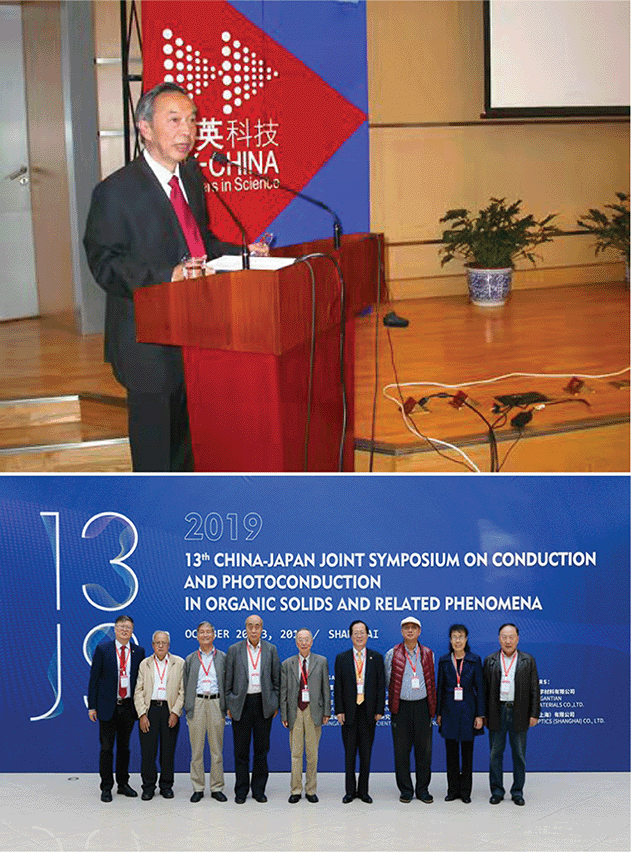 | ||
| Fig. 1 Professor Daoben Zhu gave a speech at the UK–China Science Forum (top) and conducted social activities at the China–Japan joint symposium (bottom). | ||
During the process of putting together this themed issue, we received overwhelming enthusiasm from many researchers in the organic solids community, in recognition of Professor Zhu's tremendous contribution to the field and/or in appreciation of his mentorship. We are grateful to the colleagues and friends for sharing their research and insights in this exciting themed issue. We also deeply appreciate the support of the editorial team of Journal of Materials Chemistry C.
Finally, we would like to use a Chinese poem (written by Dr Yanqiu Sun) to express our lofty respect to Professor Zhu and wish him all of the best.
Salute to Professor Zhu (English Translation)
Admiration for Professor Zhu's noble character as high as mountains,
Appreciation for leadership of the Chinese organic solids,
Not for fame or wealth,
But to nurture students and knowledge all over the world.
Happy Birthday, Professor Zhu!
| This journal is © The Royal Society of Chemistry 2022 |

